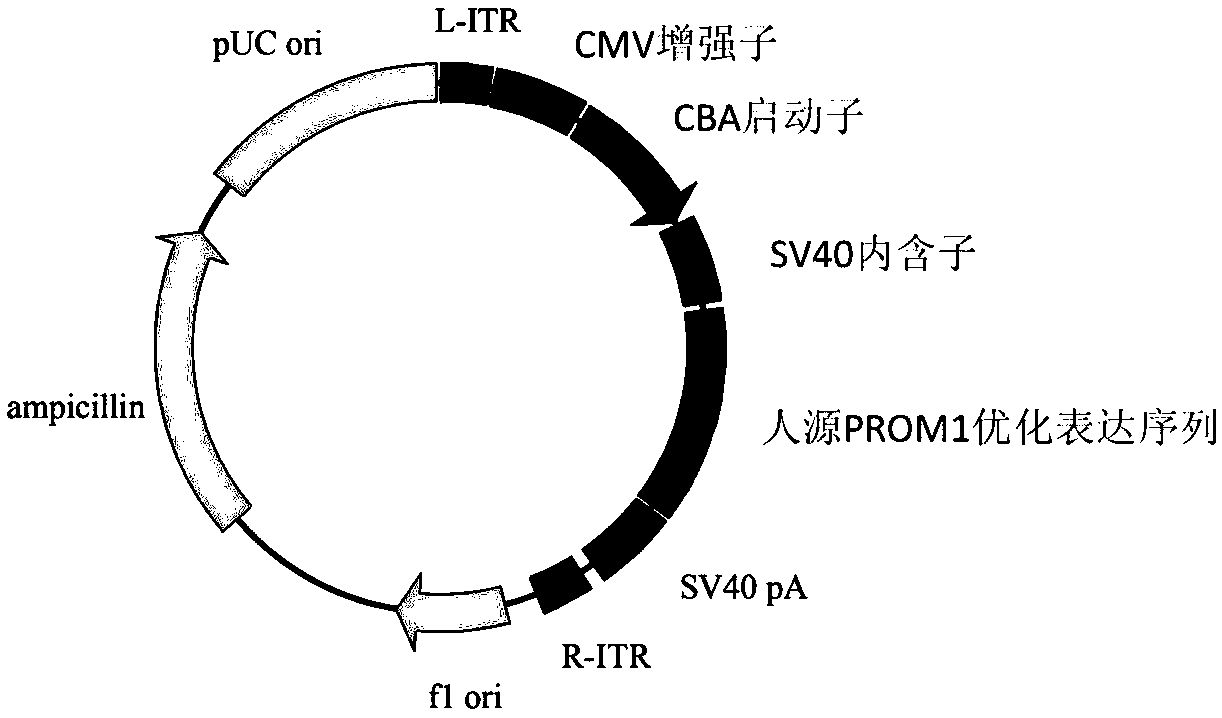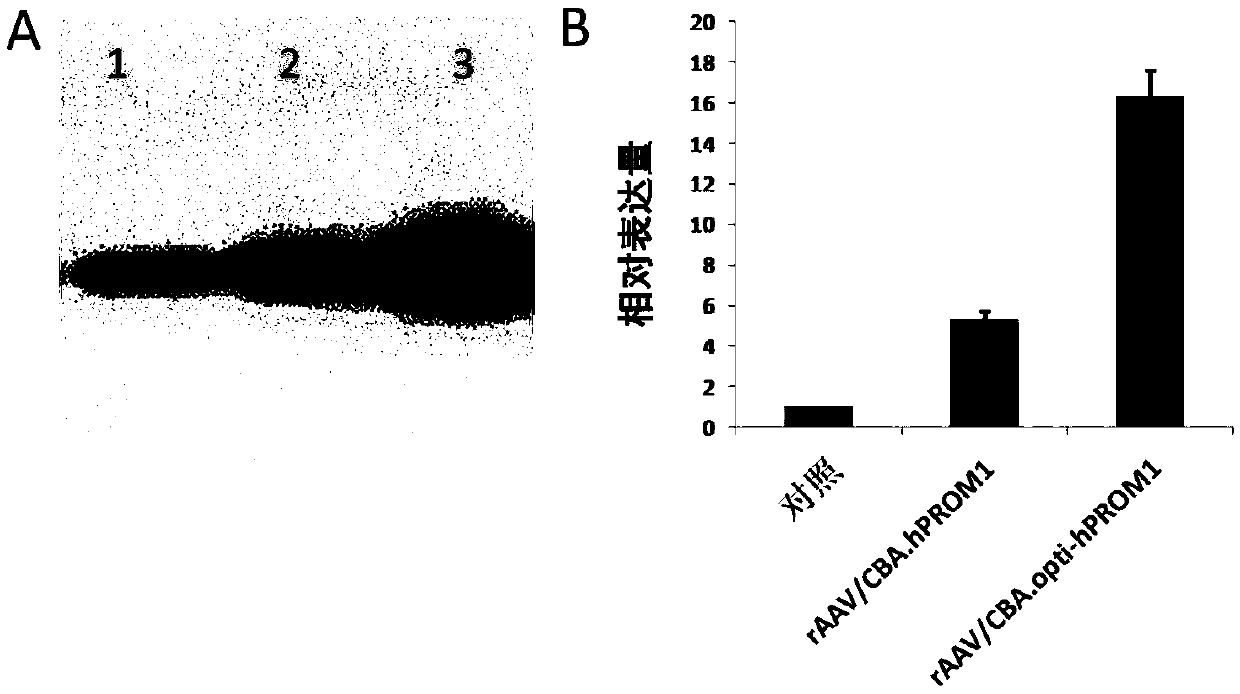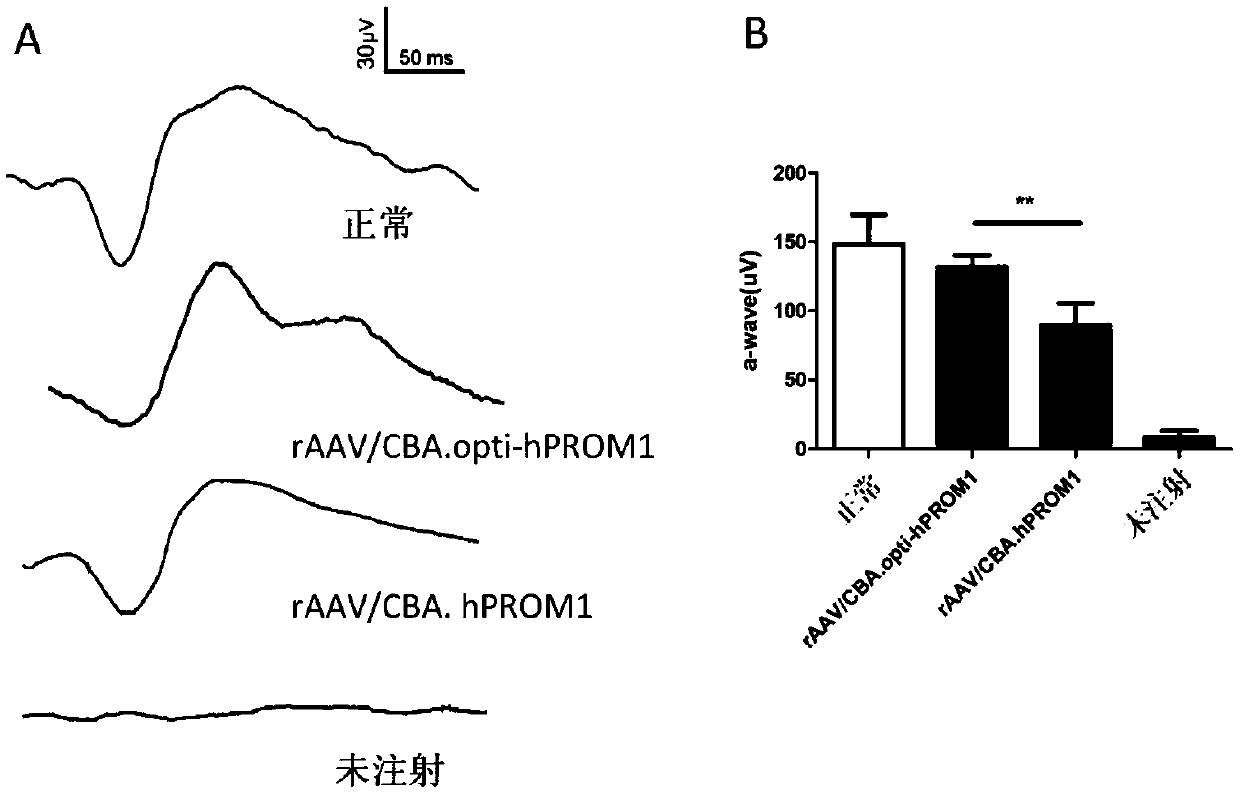Gene therapy carrier for treating retinitis pigmentosa diseases
A technology of viral vectors and vectors, applied in the field of genetic engineering, can solve problems such as complex pathogenic mechanisms
- Summary
- Abstract
- Description
- Claims
- Application Information
AI Technical Summary
Problems solved by technology
Method used
Image
Examples
Embodiment 1
[0176] Example 1 Sequence Optimization
[0177] In this example, based on the amino acid sequence of PROM1 protein (SEQ ID No.: 3) and the natural coding sequence (SEQ ID No.: 2), the inventors optimized the coding sequence. Specifically, the inventors optimized sequence fragments that affect gene expression, including but not limited to: codon usage bias, elimination of secondary structures that are unfavorable to expression (such as hairpin structures), changes in GC content, CpG II Nucleotide content, secondary structure of mRNA, cryptic splice sites, early polyadenylation sites, internal ribosome entry and binding sites, negative CpG islands, regions of RNA instability, repetitive sequences (direct repeats , inverted repeats, etc.) and restriction sites that may affect cloning. Through analysis and test screening, a specially optimized DNA coding sequence as shown in SEQ ID NO.:1 is finally obtained.
[0178] Such as figure 1 As shown, the recombinant adeno-associated v...
Embodiment 2
[0181] 1. Experimental grouping:
PUM
 Login to View More
Login to View More Abstract
Description
Claims
Application Information
 Login to View More
Login to View More - R&D
- Intellectual Property
- Life Sciences
- Materials
- Tech Scout
- Unparalleled Data Quality
- Higher Quality Content
- 60% Fewer Hallucinations
Browse by: Latest US Patents, China's latest patents, Technical Efficacy Thesaurus, Application Domain, Technology Topic, Popular Technical Reports.
© 2025 PatSnap. All rights reserved.Legal|Privacy policy|Modern Slavery Act Transparency Statement|Sitemap|About US| Contact US: help@patsnap.com



